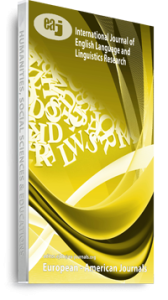The present work is devoted to the analysis of the linguistic consequences of digital technology in the learning of the English language in a university environment. In other words, this article talks about the linguistic consequences of SMS on the learning of English in a context dominated by the implementation, by the State of Senegal, of the “Digital Senegal” strategy and the concretization of certain programs in building an “inclusive digital society”, in order to promote a learning society. SMS (Short Message Service) is a method of communication that allows short messages to be sent by telephone, computer or other mobile devices. Thus, this work aims to analyze the grammatical, morphological and orthographic consequences of this method of communication on the learning of English at university. However, to collect data in order to develop a corpus, process it and analyze it to end up with results, research, interviews, exchanges by SMS, etc. have been done. And these approaches have allowed us to point out that SMS have a negative impact on learning English and on the writing of educational and administrative documents at the grammatical, morphological, orthographic, etc. levels. Nevertheless, we have also noticed that for some, the great majority of the “errors” or “mistakes” present in the written discourse are not the result of a lack of knowledge of the norm or a lack of interest on the part of the speakers, but rather the mark of an underlying structure.
Keywords: Language, Learning, Linguistics, communication, consequence

